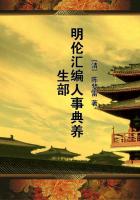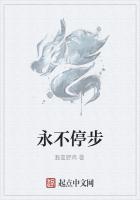Caridwen, in the shape of a hen, swallows Gwion Bach, in the form of a grain of wheat. In the same manner the princess in the Arabian Nights swallowed the Geni. Here then we have in the Hesiodic myth an old marchen pressed into the service of the higher mythology. The apprehension which Zeus (like Herod and King Arthur) always felt lest an unborn child should overthrow him, was also familiar to Indra; but, instead of swallowing the mother and concealing her in his own body, like Zeus, Indra entered the mother's body, and himself was born instead of the dreaded child. A cow on this occasion was born along with Indra. This adventure of the or swallowing of Metis was explained by the late Platonists as a Platonic allegory. Probably the people who originated the tale were not Platonists, any more than Pandarus was all Aristotelian.
Hesiod, Theogonia, 886. See Scholiast and note in Aglaophamus, i. 613. Compare Puss in Boots and the Ogre.
Mabinogion, p. 473.
Black Yajur Veda, quoted by Sayana.
After Homer and Hesiod, the oldest literary authorities for Greek cosmogonic myths are the poems attributed to Orpheus. About their probable date, as has been said, little is known. They have reached us only in fragments, but seem to contain the first guesses of a philosophy not yet disengaged from mythical conditions. The poet preserves, indeed, some extremely rude touches of early imagination, while at the same time one of the noblest and boldest expressions of pantheistic thought is attributed to him. From the same source are drawn ideas as pure as those of the philosophical Vedic hymn, and as wild as those of the Vedic Purusha Sukta, or legend of the fashioning of the world out of the mangled limbs of Purusha. The authors of the Orphic cosmogony appear to have begun with some remarks on Time (). "Time was when as yet this world was not." Time, regarded in the mythical fashion as a person, generated Chaos and Aether. The Orphic poet styles Chaos , "the monstrous gulph," or "gap".
This term curiously reminds one of Ginnunga-gap in the Scandinavian cosmogonic legends. "Ginnunga-gap was light as windless air," and therein the blast of heat met the cold rime, whence Ymir was generated, the Purusha of Northern fable. These ideas correspond well with the Orphic conception of primitive space.
Rig-Veda, x. 90.
Lobeck, Aglaophamus, i. 470. See also the quotations from Proclus.
Gylfi's Mocking.
Aglaophamus, p. 473.
In process of time Chaos produced an egg, shining and silver white.
It is absurd to inquire, according to Lobeck, whether the poet borrowed this widely spread notion of a cosmic egg from Phoenicia, Babylon, Egypt (where the goose-god Seb laid the egg), or whether the Orphic singer originated so obvious an idea. Quaerere ludicrum est. The conception may have been borrowed, but manifestly it is one of the earliest hypotheses that occur to the rude imagination.
We have now three primitive generations, time, chaos, the egg, and in the fourth generation the egg gave birth to Phanes, the great hero of the Orphic cosmogony. The earliest and rudest thinkers were puzzled, as many savage cosmogonic myths have demonstrated, to account for the origin of life. The myths frequently hit on the theory of a hermaphroditic being, both male and female, who produces another being out of himself. Prajapati in the Indian stories, and Hrimthursar in Scandinavian legend--"one of his feet got a son on the other"--with Lox in the Algonquin tale are examples of these double-***ed personages. In the Orphic poem, Phanes is both male and female. This Phanes held within him "the seed of all the gods," and his name is confused with the names of Metis and Ericapaeus in a kind of trinity. All this part of the Orphic doctrine is greatly obscured by the allegorical and theosophistic interpretations of the late Platonists long after our era, who, as usual, insisted on finding their own trinitarian ideas, commenta frigidissima, concealed under the mythical narrative.
Clemens Alexan., p. 672.
Damascius, ap. Lobeck, i. 481.
Aglaoph., i. 483.
Another description by Hieronymus of the first being, the Orphic Phanes, "as a serpent with bull's and lion's heads, with a human face in the middle and wings on the shoulders," is sufficiently rude and senseless. But these physical attributes could easily be explained away as types of anything the Platonist pleased. The Orphic Phanes, too, was almost as many-headed as a giant in a fairy tale, or as Purusha in the Rig-Veda. He had a ram's head, a bull's head, a snake's head and a lion's head, and glanced around with four eyes, presumably human. This remarkable being was also provided with golden wings. The nature of the physical arrangements by which Phanes became capable of originating life in the world is described in a style so savage and crude that the reader must be referred to Suidas for the original text. The tale is worthy of the Swift-like fancy of the Australian Narrinyeri.
Damascius, 381, ap. Lobeck, i. 484.
Hermias in Phaedr. ap. Lobeck, i. 493.
Suidas s. v. Phanes.














